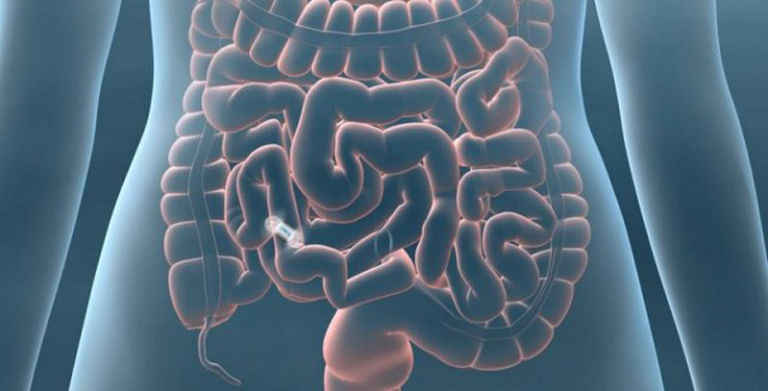Uncategorized
Medical Marijuana for Crohn’s Disease
Crohn’s is a type of inflammatory bowel disease (IBD) that can affect any part of the gastrointestinal tract. Symptoms usually include abdominal pain, diarrhea, fever and weight loss. Conditions, that we already know Medical Marijuana to have an impact on. There is no single known cause for Crohn’s but Doctors do attribute environmental, immune and bacterial factors in genetically susceptible individuals. Whether mild or severe, Crohn’s can be crippling.
Four potential benefits that Medical Marijuana can offer for Crohn’s patients are as an anti-inflammatory, an antidiarrhoeal, an analgesic (pain killer) and as an appetite stimulant.
There are no medications or surgical procedures to cure Crohn’s disease. Treatment options are aimed at treating symptoms, maintaining remission and trying to prevent relapse. The various steroids, pills and blood infusion techniques are not effective for everyone, many have found relief with Medical Marijuana.
Looking online, you can find thousands of blog posts loosely reporting the powers of MMJ for Crohn’s. What we discovered is that they all reference the same two studies and those specific studies, are what we’ll discuss here.

Cannabis induces a clinical response in patients with Crohn’s disease: a prospective placebo-controlled study – http://www.ncbi.nlm.nih.gov/pubmed/23648372
The goal was to investigate if Medical Marijuana produced beneficial effects for patients with IBD, since there had not been any controlled human trials to date. A prospective trial was established to determine whether MMJ can induce remission in patients with Crohn’s disease. The study oversaw 21 patients with active Crohn’s that did not respond to traditional treatments such as steroids, immunomodulators or anti-tumor necrosis factor-a agents. The study used inhaled MMJ from THC-rich joints along with non-THC joints for the placebo group.
The results were broken down into a variety of categories, all of which can be found in the study link above. After a short 8 week course, THC-rich Medical Marijuana produced “significant clinical, steroid-free benefits to 10 of 11 patients with active Crohn’s disease, compared with placebo, without side effects”. The authors of this study called for further studies using larger patient groups as well as a nonsmoking mode of intake. They concluded there was a benefit.
Cannabis use amongst patients with inflammatory bowel disease – http://www.ncbi.nlm.nih.gov/pubmed/21795981
This study is also highly cited and used a much larger patient base. The aim of this study was to evaluate Medical Marijuana use in patients with IBD based on the experimental evidence that suggests the Endocannabinoid System (ECS) may protect against colonic inflammation. A total of 191 patients with Crohn’s disease and 100 patients with Ulcerative Colitis (UC) were given questionnaires regarding current and previous use of MMJ, socioeconomic factors, along with disease history and medication use.
We’re glad studies like this have been conducted but nothing compares to, controlled clinical trials on a grand scale. Roughly 50% of the patients surveyed reported past use of Medical Marijuana to relieve abdominal pain, diarrhea and reduced appetite. They found MMJ use was more common amongst patients who had abdominal surgery, chronic abdomen pain and / or a low quality of life index. This study concluded that “therapeutic benefits of cannabinoid (THC, CBD, ect.) derivatives in IBD may warrant further exploration”.
Another research paper that caught our eye was – “Impact of cannabis treatment on the quality of life, weight and clinical disease activity in inflammatory bowel disease patients: a pilot prospective study”. – http://www.ncbi.nlm.nih.gov/pubmed/22095142
The goal was to assess whether treatment with inhaled MMJ improves quality of life, disease activity and promotes weight gain in the 13 patients studied. After three months of “treatment with inhaled cannabis improves quality of life measurements, disease activity index, and causes weight gain and rise of BMI in long-standing IBD patients.

While researching this topic for a member of our Seniors MMJ Network, we discovered many other studies regarding IBD and Medical Marijuana. This is partly due to our rapidly evolving understanding of the Endocannabinoid System, which is a group of receptors in our bodies that cannabinoids bond with. For a solid understanding of how MMJ interacts with Crohn’s in the body, we recommend this link –https://www.karger.com/Article/FullText/356512
An even larger picture of the ECS and it’s role in the gastrointestinal tract was published by the Canadian Journal of Gastroentrology. It provides a wonderful foundation for understanding the CB1 and CB2 receptors and how they could be the key to regulating inflammation in the gut. You can find that information here –http://www.ncbi.nlm.nih.gov/pmc/articles/PMC3174079/
What does this all mean? It means there is now growing scientific proof to support the vast amounts of anecdotal evidence for Medical Marijuana as a potential treatment for people who suffer from debilitating conditions like Crohn’s disease. In each study that we reviewed, they all concluded that further research is warranted, it shows potential.

Original Source: Seniors MMJ Network

